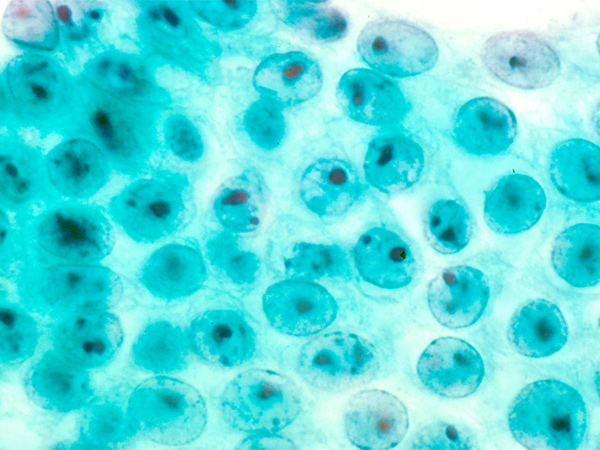Immunotherapy for Stomach Cancer
The FDA has approved pembrolizumab for treating certain patients with advanced stomach (gastric) cancer.

Use of the immunotherapeutic pembrolizumab (Keytruda) was recently expanded by the U.S. Food and Drug Administration (FDA) to include the treatment of certain patients with stomach cancer (gastric cancer).
Specifically, pembrolizumab is intended for patients with recurrent locally advanced or metastatic stomach cancer or cancer of the part of the esophagus (the tube that connects the throat with the stomach) that connects to the stomach (gastroesophageal junction adenocarcinoma) whose cancer tests positive for the protein PD-L1 and has progressed despite treatment with two or more systemic therapies.
With this decision, pembrolizumab is now an approved treatment for six types of cancer – bladder cancer, head and neck cancer, Hodgkin lymphoma, lung cancer, stomach cancer, and melanoma – and any solid tumor characterized by the presence of either of two specific biomarkers, microsatellite instability-high (MSI-high) and DNA mismatch repair-deficiency (MMR-deficient).
Stomach cancer incidence and death rates have been falling in the United States for the past four decades, according to data from the National Cancer Institute. Despite this progress, it is estimated that 28,000 U.S. adults will be diagnosed with the disease in 2017 and that 10,960 will die from it.
The outlook for patients diagnosed with metastatic stomach cancer is particularly poor, thus, new treatment options are urgently needed.
The FDA announcement stated that the approval of pembrolizumab was based on results from the phase II KEYNOTE-059 clinical trial. Among the 143 patients whose cancers expressed PD-L1, two saw their tumors shrink completely and 17 had partial tumor shrinkage, giving an overall response rate of 13.3 percent. Of note, 58 percent of these patients had responses that lasted six months or longer and 26 percent had responses that lasted 12 months or longer.
Alongside the pembrolizumab decision, the FDA approved the PD-L1 IHC 22C3 pharmDx companion diagnostic test to identify patients whose cancers express PD-L1 and are eligible for treatment with pembrolizumab.
Importantly, the approval of pembrolizumab centers on response data, rather than overall survival. Thus, the company that manufactures pembrolizumab (Merck) is required by the FDA to conduct additional studies to confirm that the immunotherapeutic does in fact improve survival for patients with advanced gastric cancer or gastroesophageal junction adenocarcinoma.
The FDA approval was rendered on September 22, 2017.